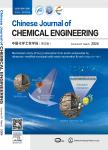Multivariable Decoupling Predictive Control Based on QFT Theory and Application in CSTR Chemical Process
Multivariable Decoupling Predictive Control Based on QFT Theory and Application in CSTR Chemical Process作者机构:Department of AutomationNankai University
出 版 物:《Chinese Journal of Chemical Engineering》 (中国化学工程学报(英文版))
年 卷 期:2006年第14卷第6期
页 面:765-769页
核心收录:
学科分类:081704[工学-应用化学] 08[工学] 0817[工学-化学工程与技术] 081701[工学-化学工程]
基 金:the National Natural Science Foundation of China (No.60374037, No.60574036) the Program for New CenturyExcellent Talents in Education Ministry (NCET) the Specialized Research Fund for the Doctoral Program of Higher Edu-cation of China (No.20050055013)
主 题:quantitative feedback theory generalized predictive control decouple multivariable uncertain system frequency domain design
摘 要:A novel method of incorporating generalized predictive control GPC algorithms based on quantitative feedback theory QFT principles is proposed for solving the feedback control problem of the highly uncertain and cross-coupling plants. The quantitative feedback theory decouples the multi-input and multi-output MIMO plant and is also used to reduce the uncertainties of the system, stabilize the system, and achieve tracking performance of the system to a certain extent. Single-input and single-output SISO generalized predictive control is used to achieve performance with higher performance. In GPC, the model is identified on-line, which is based on the QFT input and the plant output signals. The simulation results show that the performance of the system is superior to the performance when only QFT is used for highly uncertain MIMO plants.



